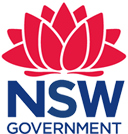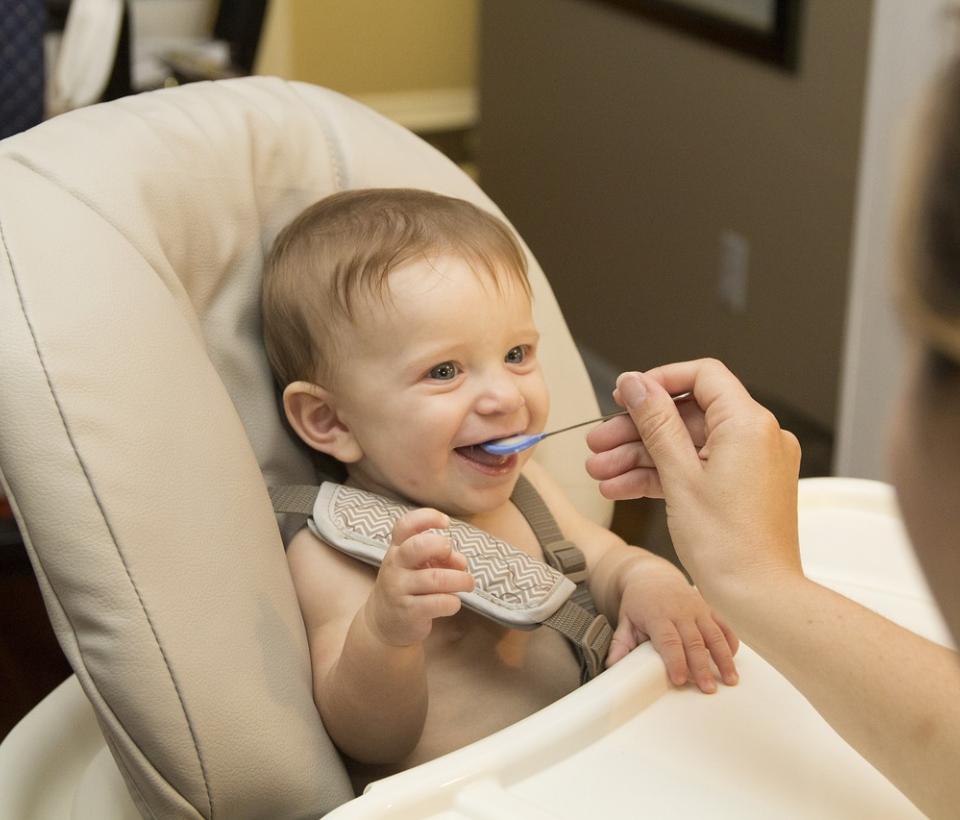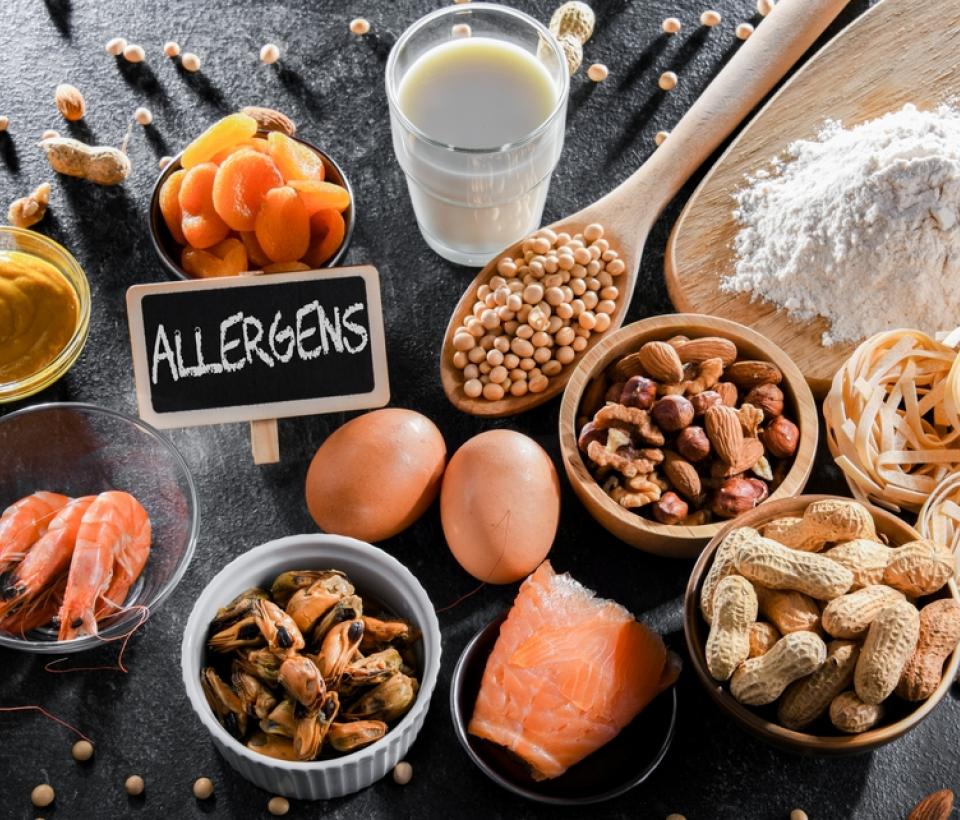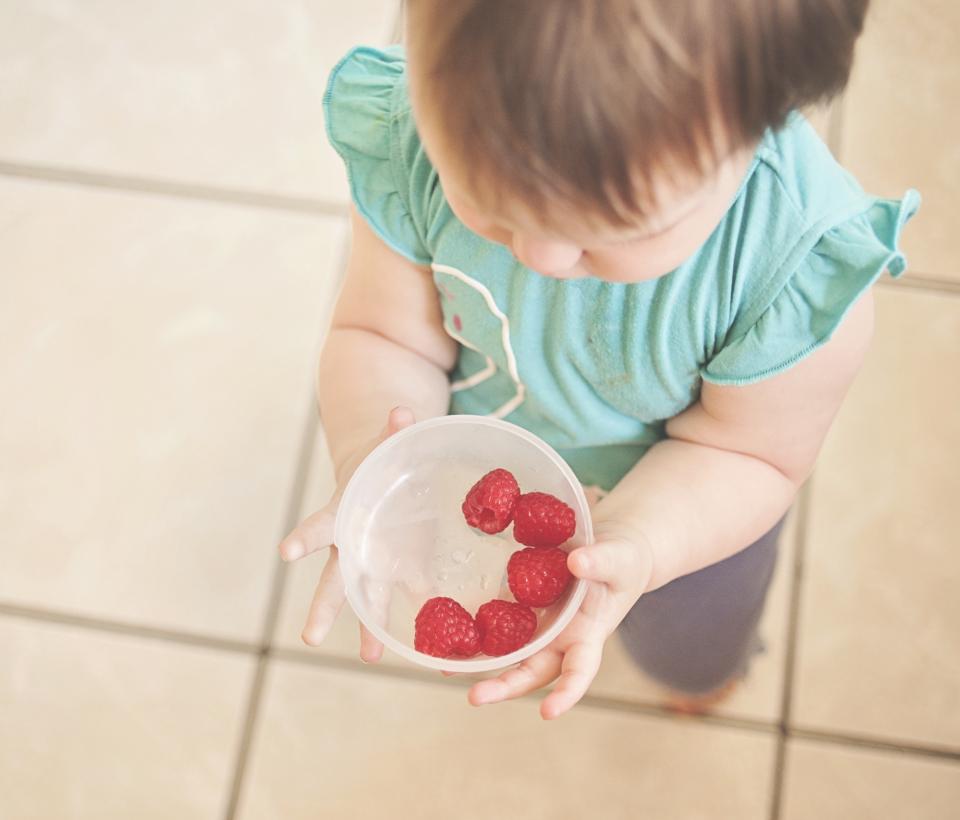
Introducing Solids
As your baby gets older, they need solid food to support their growth and development. From around 6 months, babies can start to eat solid foods while you continue with breastmilk or formula.
Introducing solids helps your baby learn to eat and experience new tastes and textures. It also helps to build strength in their jaw that they will need for language development as they grow.
Signs that it's time to introduce solids
Look out for the following signs that show your baby is ready for solid food:
-
Has good neck and head control and can sit upright when supported
-
Shows an interest in food, for example – looks at what’s on your plate
-
Reaches out for food
-
Opens their mouth when you offer them food on a spoon
For information on which foods to start with, go to Trying New Foods
What's the best time of the day to introduce solids?
When first introducing solids, it is good to offer these when both you and your baby are happy and relaxed. Usually this is shortly after a milk feed, as there is usually room in their bellies for a taste of new food.
You may notice that as their appetite and interest for solids grows, that they may consume less breastmilk or formula, this is normal. As a guide, from six-eight months you should offer your baby breastmilk or formula before solids to ensure they are getting the nutrients they need to develop. From 9-12 months, you can choose to offer breastmilk or formula after solids. By 9-12 months, your baby should be eating three solid meals a day
As you and your baby become more experienced with solids, you will be able to learn when they are hungry or full, as well as not interested or tired.
Hunger signs include:
-
getting excited when they see food, or see you preparing food
-
Leaning towards food while in the highchair
-
Opening their mouth as you are about to feed them
Not interested signs include:
-
Turning their head away from food
-
Pushing the spoon away
-
Pushing the plate away
-
Clamping their mouth shut
Which foods to start with?
All foods will be a new experience for your baby. It is important that when you introduce food, it is prepared according to their age. Most babies start with puree for a smooth texture and then progress to mashed food. Some babies will prefer finger foods, but all babies are different. Ensure that you include iron-rich foods in your baby’s diet. Some examples include:
-
Iron-fortified infant cereal
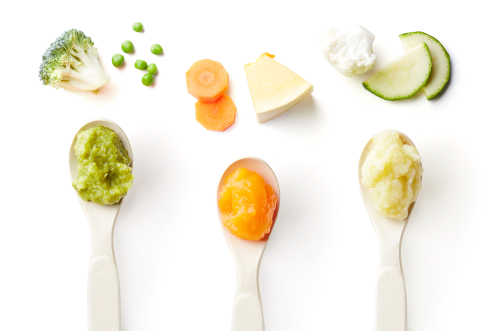
-
Minced beef, lamb, chicken or fish
-
Cooked tofu or legumes
-
Mashed, cooked egg (ensure eggs are fully cooked)
-
Cooked vegetables. Try including white, orange, green and yellow vegetables each day.
Some other foods that should be included into your baby’s diet, include:
-
Fruit. Cooked or mashed according to age
-
Dairy foods.
-
Wholegrain breads, cereal and pasta.
Water
Your baby can start having cooled, boiled water from about 6 months. Offering water in a cup helps your baby to learn this new skill.
For more information see Introducing solid food.
For ideas on preparing and cooking baby food, see Homemade baby food
[Raising Children Network, 2022; Pregnancy, Birth & Baby, 2020; Tresillian, 2022.]
Articles
If your baby is under 6 months of age, the only fluid they need is breastmilk or formula.
For the first 6 months of their life, your baby gets all the nutrition they need from breastmilk or formula.
Once your baby shows that they are ready for solid foods (approximately 6 months old), it is important to introduce foods that…
Letting your baby feed themselves can be messy and frustrating, but it is an important stage of development.

